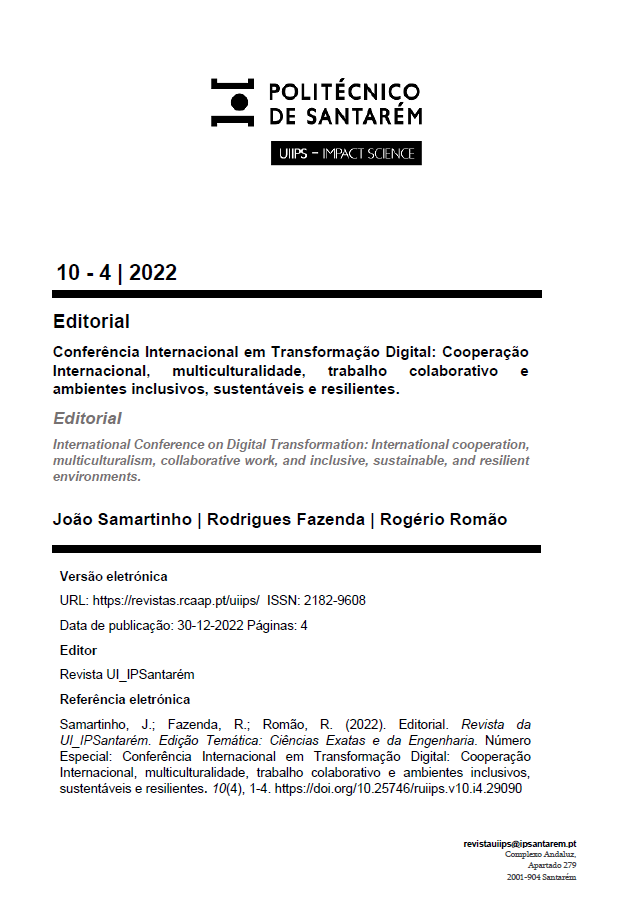Promoting open and flexible education at the Polytechnic Institute of Tomar: The NAU Project
DOI:
https://doi.org/10.25746/ruiips.v10.i4.29092Keywords:
Distance Education, Educational Technology, MOOC, Pedagogical InnovationAbstract
Online courses, due to their growing demand, have been increasingly addressed in recent decades, especially from 2019 onwards. In this context, this article aims to describe and analyze the results associated with two MOOCs (Massive Open Online Courses) developed by the Laboratory of Pedagogical Innovation and Distance Education of the Polytechnic Institute of Tomar (LIED). It starts by presenting some reflections on the framework of the MOOCs, analyzing their advantages, and placing them in the context of distance education accessible to large audiences. Next, the vision and objectives of the NAU platform in which the two MOOCs under analysis are hosted are described. This is followed by a description of the strategy adopted in the creation of the MOOCs, as well as the objectives, structure and analysis of the results arising from the first edition of each MOOC. The experience carried out helped to understand some needs on the part of participants, such as the assignment of ECTS or the provision of complementary text-based content. New MOOCs are in the process of creation and others are also planned for 2023. It is internally recognized the positive impact that MOOCs have in the dissemination of the teaching that is carried out in the IPT, but also as resources that can be accessed by students for knowledge levelling.
Downloads
Published
How to Cite
License
Copyright (c) 2022 Célio Gonçalo Marques, Ana Nata, António Manso, Inês Araújo

This work is licensed under a Creative Commons Attribution-NonCommercial-NoDerivatives 4.0 International License.
Authors publishing in this journal agree to the following terms:
Authors retain copyright and grant the journal the right of first publication, with the article simultaneously licensed under the Creative Commons Attribution License that allows sharing of the work with acknowledgement of authorship and initial publication in this journal.
Authors are permitted to enter into additional contracts separately for non-exclusive distribution of the version of the article published in this journal (e.g., publish in an institutional repository or as a book chapter), with acknowledgment of authorship and initial publication in this journal.
Authors have permission and are encouraged to publish and distribute their work online (e.g., in institutional repositories or on their personal webpage) at any point before or during the editorial process, as this may generate productive changes, as well as increase the impact and citation of the published work.



